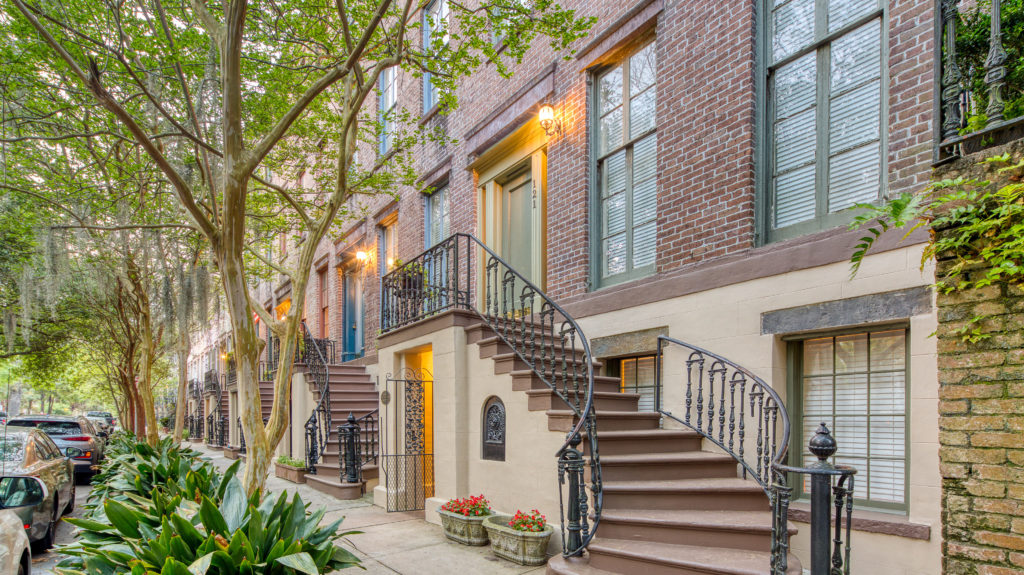With interest rates near record lows, now is certainly a great time to buy a home in Savannah. Fortunately, a number of tax incentives are available to local homeowners in Chatham County, which can significantly reduce the tax burden involved in owning a home.
Under Georgia law, homeowners are eligible to claim a homestead exemption for a primary residence beginning on January 1 of a given tax year. By filing for the Homestead Exemption, the homeowner will receive a reduction in the home’s assessed value. A homeowner only needs to file the Homestead Exemption one time with the Chatham County Board of Assessors.
Stephens-Day Homestead Exemption
The Stephens-Day homestead exemption “freezes” property taxes on a primary residence, which help keeps long-time residents from being “taxed out” of their dwellings. The exemption is equal to the difference between the current year fair market value of the home and the adjusted base year value, which is the property’s value in the year prior to the homestead application plus any improvements since the year of the application. The exemption does not apply to improvements added to the property after January 1 of the base year.
This popular homestead exemption provision builds value into the home you buy this year. The Stephens-Day Homestead Exemption also provides two important protections: it prevents the forced sale of a home to meet the demands of creditors and provides a surviving spouse with shelter as well as continued property tax relief.
Chatham County residents who own and occupy a home and the land it is built upon can be eligible for the exemption. Property owners can claim only one homestead exemption, and it must apply to their primary residence, not to rental properties. Only persons who reside on the property and whose name appears on the title are qualified to file for tax exemptions. Applications must be completed in person by the property owner, unless they have given another party their power of attorney. When the homeowner sells the property, the tax value resets to the current market value, and the cycle begins again.
In order to apply for a homestead exemption or a Stephens-Day Homestead Exemption in Chatham County, the property owner must provide the Chatham County Board of Assessors staff with a valid Georgia Driver’s License or Georgia Identification Card as well as registration for vehicles owned by and registered in the name of the applicant. A prior year utility bill or Chatham County Voter’s Registration Card may also be requested by the Board of Assessors. Please note that local school board tax is not subject to this exemption or tax treatment.
Special Exemptions
Chatham County property owners who qualify for a homestead exemption may also be eligible for additional special exemptions, provided that applicants meet pre-determined age, income or disability criteria.
Available special exemptions include a Senior School Tax Exemption, School Tax Disability Exemption and Tax Deferral for the Elderly. Exemptions are also available for disabled veterans and surviving spouses of U.S. service members who were killed in action or surviving spouses of firefighters or peace officers.
Applicants will need to provide verification documents such as federal and state income tax returns, DD214 character of discharge military paperwork, a Veteran’s Administration letter documenting 100% disability, or a letter from a Georgia licensed medical physician.
Enterprise and Opportunity Zones
The City of Savannah established the Enterprise Zone (EZ) Municipal Tax Abatement Program in accordance with the State of Georgia Enterprise Zone Employment Act of 1997 in order to incentivize the revitalization of neighborhoods “experiencing high levels of disinvestment, underdevelopment, and economic decline.”
The program provides property taxes abatement over a 10-year period for residential properties located within the designated geographic area for property owners who meet certain criteria. The EZ-Approved Residential Property (Home Ownership Purchase) program encourages home ownership in EZ areas. If a homeowner meets certain criteria, it’s possible to qualify for property tax abatement.
In addition, the Federal Opportunity Zone program is designed to promote investment in low-income communities by providing tax benefits for committing capital gains to ventures in selected Low-Income Community Census Tracts. In Savannah, eligible Opportunity Zones include the Westside and Canal District; Eastside and Waters Avenue; and the Southside.
1031 Like Kind Exchanges
Real estate investors who elect to sell a property can take advantage of a special section in the U.S. IRS tax code that allows the deferral of capital gains or losses on the property. It’s important to note that this particular tax code cannot be applied to a primary residence.
There are a number of different types of 1031 exchanges, including simultaneous 1031 exchanges, which occur when an investor closes on a new property and an old property on the same day, and deferred 1031 exchanges, which allow an investor up to 180 days after the sale of a property to complete the exchange.
When you’re buying a home, be sure to work with a real estate agent and a real estate attorney who are knowledgeable about local property tax incentives in order to take advantage of various opportunities to reduce your overall property tax burden.
